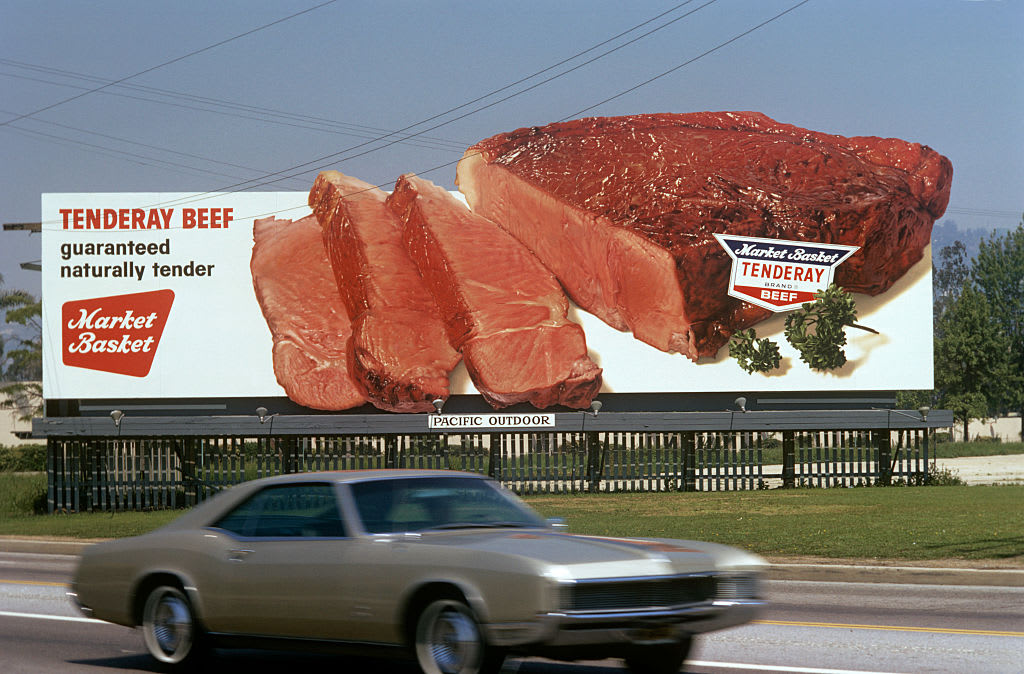From 2004: "Super Size Me"
When filmmaker Morgan Spurlock heard about a lawsuit that two overweight New York teenagers had brought against McDonald's, blaming the restaurant for their condition, he decided to conduct an experiment.
For 30 days, Spurlock ate McDonald's food, three meals a day, to see what would happen to his body. He chronicled this diet in his new documentary "Super Size Me."
He tells The Early Show co-anchor Harry Smith, "The more I heard about the lawsuits, the marketing factors, the nutritional aspects of the food, I thought there is a basis for the argument."
The crew shot 250 hours worth of footage, traveled more than 25,000 miles and made a movie, from concept to fruition, in less than one year.
During his experiment, Spurlock (despite the protests of his live-in girlfriend, a vegan chef) followed the following four rules:
- No options. He could eat only what was available over the counter (water included!).
- No super-sizing unless offered.
- No excuses. He had to eat every item on the menu at least once.
- No giving up. He had to eat three meals a day: breakfast, lunch and dinner.
Besides experiencing first-hand the effects of consuming a fast-food diet, Spurlock interviewed experts in 20 U.S. cities, including Houston, then the "Fattest City" in America (now, it's Detroit). Surgeon Generals, gym teachers, cooks, kids, lawmakers and legislators shared their research, opinions and "gut feelings" about the nation's ever-expanding girth.
The movie starts with Spurlock in great shape, according to a physical examination. But after a month, he says he gained. 24.5 pounds. "My cholesterol shot up 65 points. My liver basically turned to fat. It was so filled with fat the doctors said it was like pate; it was reaching a toxic level, putting me in risk of having non-alcoholics type of hepatitis, hardening of the liver, cirrhosis of the liver. It got really frightening for a while. And the impact it had on my sex life was also another aspect my girlfriend didn't anticipate."
Having started at 185 pounds, Spurlock also assumed a more sedentary life-style.
He explains why: "Sixty percent of Americans get no exercising whatsoever. I pulled back my exercising to at least get more walking than most Americans do. The average American doesn't even walk 2 miles and I was walking in average of 2 1/2 to 3 miles a day."
So why McDonald's?
Spurlock says, "It could have happened to any fast food chain. Especially, the way we live our lifestyle, we overeat and under exercise. I picked McDonald's because they're iconic. They are iconic of every food to me of this entire fast food culture - the fast-food lifestyle that we all lead of overeating and not exercising."
Asked if he holds them responsible, Spurlock says, "I believe it's a two-way street because I believe there's not enough information coming out to the consumer. When you feed 46 million people every day, as McDonald's does, you have a huge responsibility - 46 million worldwide, half of them in America, 23 million every day, almost 10 percent of the population. You have a responsibility to help educate your consumer to make the right choices, letting them know how often they should eat the food."
The following is statement from McDonald's director of Worldwide Nutrition, Dr. Cathy Kapica:
She says, "As a registered nutritionist, I was extremely disappointed when I saw this movie. Here was an opportunity to actually provide insights into a serious problem. In fact, all it turned out to be was an extreme stunt where someone engaged in irresponsible behavior of eating twice as much as they should every day, limiting physical activity. It was a complete disservice to anyone looking for factual information or real solutions."
Spurlock's response? "The film is a snapshot of your life," he says. "If you lead a style of sedentary behavior, of overeating, of over consuming, this film shows what can happen to you in 30, 40 years. You'll be on path like I was to elevated cholesterol, diabetes, heart disease, and liver failure. These are the things that can happen to you. This film is a little piece of what can happen."
Through his film, he also explored school lunch programs, declining health and physical education classes, food addictions and the extreme measures people take to lose weight and regain their health.
He notes, "If you're a parent who eats out four, five, six days a week and don't exercise and don't make health a very important part of the life, you raise kids that do the same."
The film, which won Spurlock honors as best director at the Sundance Film Festival, opens in theaters Friday.
A graduate of New York University's Tisch School of the Arts, Morgan Spurlock has conceived and created more than 60 projects during his 12 years in the industry. From commercials to music videos to television shows, Spurlock has worked with such companies as MTV, ESPN, NBC, FOX, TNT, VH-1, Sony and MCA Records.
The West Virginia native is the founder of The Con, a New York-based production company.



